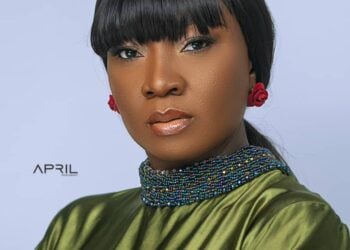Look, when it comes to anything remotely about the K-word (if you are an avid addict like me), it comes with a feeling of ‘oh my God, that should be my daily experience realistically and as a fantasy. What is the K-word, you may ask? It is the current reigning cultural fad that is more popular than bread or ice-cream…k-drama, k-pop, k-culture, k-hotness and all the positive K terms you can envision that depict beauty, sensuality, perfection, family values, realistic expectations from life and times all tied to a bustling economy and more of Korea, the current reigning projected media champions.
Korea, a country renowned for its vast technological advancement (Thanks to Samsung, LG electronics, LG display, Hyundai Auto ever Corp and more… this isn’t an ad placement, I just need you to have a clearer picture of how advanced they are), has also become a very wealthy and well known hub for entertainment (unless you aren’t human moved by the beauty of being entertained then; all I can do is pray for you! If you haven’t watched a series or film with the likes of Lee Min-ho, Woo Doo-hwan, Lee Dong Wook, Kim Bum or listened to the likes of BTS, Ateez, Shau, etc…at this point I shall be committing you to the god of entertainment because you need help) fashion, and beauty, making it one of the most mesmerisingly put together nations in the world. South Korean culture has contributed immensely to the world in different aspects, making it sensational in today’s world.
In the last five years, the Koreans have tremendously as well as positively impacted all industries with its avid promotion and projection of its culture and the beauty, bearing in mind that as sensational as the Korean media portrays the citizens, its culture and the likes, there are still very negative attributes associated with the k-word as a whole. As usual, being your current favourite writer, helping you see another angle of things known and unknown, sit back and let us dive into the intellectual pool I love to call my mind.
Before swimming anywhere especially in my mind, learning the basics is how you survive, so here are my top eight things I believe you should know about the beautiful obsession that is Korea:
i. Location
South Korea consists of over 4,000 islands, each with its own unique story and history (not enough pages to go into this). Back in the day, Korea as a whole was a bit isolated (Now only North Korea is still isolated, the South is open and out there for all) from the world, quietly advancing in its own way. Nowadays, the nation is rapidly changing, and is considered one of the most popular tourist destinations due to its rich history, food scene and delectable stars.
ii. Health and love
I find this fact intriguing because this can be a matter of life or death in some nations, while the Koreans view it as a way to find love and compatibility. Here the Koreans think there is some significance to their blood type especially in South Korea; they believe by knowing this positively contributes to a person’s personality and characteristics.
iii. Age
One of the unique facts about Koreans is that they’re automatically one year old at birth. A newborn is considered one year old in South Korea.
If you would like more quick tips in understanding facts about Koreans/Korea, you can visit online sites like 90daykorean.com (it’s a go-to for me).
One must admit that Korean culture is unique and is currently enjoying all the perks of worldwide recognition, especially in recent years. An outstanding aspect of Korean culture that has garnered global attention is K-Pop. K-Pop, a.k.a Korean Pop, is a music genre that has spread in recent years. K-Pop is known for its feet-tapping, shower concerting, and blood pumping melodies as well as unique (well, complicated for someone like me with two left feet) dance routines. K-Pop groups such as BTS, Mamamoo, Seventeen, Blackpink, Ateez, Red Velvet, Got7 and EXO (this is a baby list, not the actual list, once again not enough space to write and explain) are taking over the world, with gazillions of fans globally (at this point, I bet, universally that there are aliens tuned to K-pop). The miracle is such that K-Pop concert tickets sell out within seconds (don’t blink when trying to buy them, after selling a kidney or two), with fans from different countries showing resolute support for their beloved groups.
iv. Cuisine
Another attribute of the Korean culture is their cuisine with traditional dishes, such as tteokbokki, Jajangmyeon Samgyeopsal, Korean fried chicken, kimchi, bulgogi, and bibimbap, have now become desired around the world. Korean cuisine is known for its flavourful mouth-watering taste, making it a sudden staple for those who usually would not eat spicy or flavourful meals. Thanks to the explosion and inclusion of Korean restaurants in different countries, many people now have access to indulging in a taste of Korea (Personally if you are not a good cook, or have trouble following instructions, I would advise you have an actual Korean make it for you…somethings are better handled by those from the country or nation: the difference is definitely in the taste).
v. Fashion
Korean fashion has become popular globally, giving a prim and proper college kid look with a hint of stylish rogue. The Korean fashion industry has produced remarkable designers such as Kathleen Kye, Byungmun Seo & Jina Um, Hwan Heo, Hye Young Shin and others, who have brilliantly showcased their work on international runways, further shining the light on the fashion industry. Here is the thing for me (as a plus size) K-fashion will mean nothing to me because apparently a lot of the houses do not cater to plus-size women or anything remotely with flesh. As unfair and unfortunate as it is, I believe this gap will give way to others who wish to explore the fashion industry for full-figured women in the future.
vi. Korean skincare
From sheet masks to serums, and face mist, these have become conventional globally, with intense routines that can make your face look smoother than a bouncy jell infused with a baby’s bum. Many people are constantly looking to add them to their skincare routine.
It is important to note that every culture and industry has both positive and negative attributes. While most would constantly explore only the positive attributes of the Korean culture and industry (because who doesn’t like a good thing or two), you already know that will not happen here; while we praise the positive, we must also discuss the negative so as to come up with realistic viable and long term solutions to help others. Sensationalism is profitable but can affect society negatively, and that we must avoid.
For some thoughts, perspectives and understanding may differ from the negative attributes, linking it to a generational thinking, yet I want you to review the list with an open mind, with the full understanding that people have very unfortunately killed themselves over things you thought were endurable or passable as life, times, situations and expectations. The burden of being human must be recognised and empathised.
Powerful pressure packed and placed on people concerning academics and career success has devastatingly been linked to high stress levels with an uncanny occurrence of mental health issues such as depression and suicide.
vii. Cosmetic surgery
I understand that plastic surgery is a personal choice, but the unreasonable pressure to look a specific way in order to be accepted, loved or recognised with a specific standard of beauty is damaging to one’s self-esteem and mental health, not to even talk about the health risks of going under the knife; many become really sick, react badly or even die.
viii. Toxic work culture
South Korea is also known for its long working hours and high-pressure environments. From burnouts to bullying, you name it, the toxic and overbearing work culture has led to many mental health breakdowns that never ended well for anyone. It is important to note that the Korean government has implemented measures to reduce working hours, but it remains a widespread issue in the country.
This one disturbs me the most and, honestly, it should disturb anyone who truly works behind the scenes; this is known as contract slavery, especially in the entertainment industry. Trainee contracts in the entertainment industry are devastatingly long and exhausting, with the hardworking beautiful trainees facing extremely harsh circumstances and life-threatening pressure to perform well. This practice, although recognised as contract slavery, is still yet to be completely removed from the system, with trainees having little or no control over their lives, money and sanity, being at the mercy of their agencies.
Conclusion
Here is the thing, we must applaud the Koreans for giving us epic compelling stories that weave consistent webs of intrigue, glam, family, relatable content, fashion and all things fashionable, yet one must ask: is this here to stay or a passing phase? Thanks to Covid-19 and staying indoors, K-everything boomed in more promising ways overnight (although some of us have been on the Asian train since birth) the Korean culture and industry, despite its many accomplishments, has populated negative attributes that require attention. People are dying to be perfect; people are meaner and sourly towards celebrities, online bullying / doxing is so prevalent, even the police have a headache. As K-everything continues to rise in international prominence, acknowledging and addressing these negative attributes will be essential for the well-being not only of Koreans but also for the global community.
So while we drool and fantasize over the K-word and all it encompasses, I hope you realise that real people have real issues in Korea and should not be ‘fetishised; in the event you fall into what I ordered versus what I got. Till next time.





